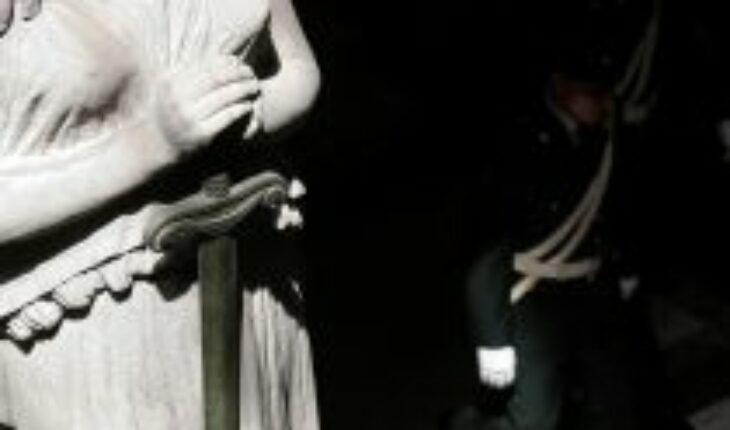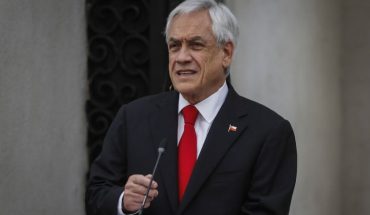Few expressions should be as groped and misunderstood as the infamous sword of Damocles. The popular deformation has focused its attention on the feeling of threat encapsulated in this story, identifying in the sword the symbol of an imminent and constant evil. John F. Kennedy himself referred to this parable, with that tone, in an address to the United Nations General Assembly in 1961. There, the AMERICAN president spoke of the “nuclear threat”, which, hanging “on the life of every man, woman and child” like the sword of Damocles, “hanging from the thinnest of threads”, was an evil that at any minute could be unleashed due to “an accident, a miscalculation or madness”. But the fable is more complex than this mere detail. I will come back to this matter later. At the moment, it is worth making a small review of three national characters who have attracted citizen interest for their unfortunate statements. Some, by the way, more deplorable than others, but in no case with innocuous effects.
Deputy Raúl Alarcón – best known for his musical career as Florcita Motuda – is a focus of unspeakable harmfulness. Incidentally, there is nothing exceptional about what happens with this authority compared to equivalent examples in other countries, where there are also some in their parliaments who fail to justify their presence. Here, without too many detours, there has been an attempt to replace the stage with congress, repeating the only formula that is familiar to him, that of the spectacle. The above is no metaphor. On the contrary, it is of a disturbing literalness. How do we explain that our fragile democracy, which has been reeling since October 18, 2019 (if not before), tolerates a deputy singing while rambling in full constitutional accusation against the president of the Nation? The spectacularization of politics, to keep afloat the simulacrum of a republican architecture, is not new per se. The same constitutional accusations have been used for these purposes. But if the agents of the drill do not even bother to disguise the simulated nature of their actions, we are facing a serious symptom. Also, recently, Alarcón added another medal to his record. In a social network he ridiculed in an ‘ironic’ way (if that sophistication exists in the speech of the parliamentarian) the vaccination campaign against SARS-CoV-2, one of the few successes of the government of the day.
At the opposite ideological pole, but no stranger to the strategies of the show, is, once again, Teresa Marinovic. A few weeks ago a video circulated in which the constituent assembly, in another outburst of a shocking infantilism – but whose dangerousness is a luxury that, at this moment, I reiterate, our democracy cannot be given – threw profanities at the Constitutional Convention. Then, via Twitter, he alleged that worse things have been said about the president, the carabineros or the military, accusing cynicism of the censorship he received. It is hard to believe that Marinovic is unable to detect the fallacy of his excuse, the obviousness of which becomes obscene. Clarifying the matter might seem clumsy, but it is worth doing it as a precaution: if a child of a neighbor, common and wild, speaks to an authority of the country without any reason it is a fact that has a certain gravity; However, if one authority insults another, whatever the context, it is always a very serious fact. Specifically, it is as if a sitting minister vilified his own government: circumstances would never absolve him. The difference is, of course, in the position that vests the subject in question.
Tertiando in the center (yellow, as he has described himself), between Alarcón and Marinovic, Cristián Warnken is glimpsed. It must be said that this is a figure whose participation in the public arena has been judged with disturbing benevolence. Perhaps it is due to its label of ‘intellectual’, a subject that would require another text to be commented on in property. But, as usual in the local environment, this recognition comes hand in hand with a free impulse that has little to do with authentic merits. It is true that for years he was at the head of one of the few spaces dedicated to culture that was remaining on national television, but from this the career of a luminary is not deduced. We should still have fresh in our memories the shameful interview that, in The beauty of thinking, he did to Miguel Serrano, férreo lawyer of National Socialism in our country. In the conversation, Warnken carefully dodged the novelist’s well-known apologies for white supremacism—or even the insinuations Serrano slipped through during the interview itself—a dialogue by two so-called scholars that transpired superficiality. Neither then nor now could the leader of “Amarillos por Chile” argue that he was not aware of what Nazism was, nor why it would be a gross mistake to remain silent about it. In short, like Alarcón or Marinovic, this sudden political leader has limited himself to doing what he knows and, in his case, it is talking trivialities: thanks to the visibility guaranteed by a platform like “El Mercurio”, week by week he expands analyzing the contingency in a column more myopic than the previous one. His analyses of the social explosion, contaminated by his privileged social position, bordered on the laughable.
In short, what unites Alarcón, Marinovic and Warnken? The sword of Damocles. Each of these has been given an important share of power, which separates them from the vast majority of the population. What they have not noticed is that, as the adage goes, “with great power come great responsibilities.” That symbolizes, in fact, the sword that hung over the throne of the sovereign, barely knotted to a single horsehair. These three characters have shamelessly wallowed in the royalties of their tribunes, without realizing it, judging by the nonsense coming out of their mouths, that they must live up to their duties, and that there are many and many who (directly or indirectly) depend on them doing well the work that has been entrusted to them. The real threat here, then, is that that horsehair will be cut off — as Kennedy indicated, “by accident, miscalculation or madness” — and the sword will fall, thus curtailing our battered democracy.
The content expressed in this opinion column is the sole responsibility of its author, and does not necessarily reflect the editorial line or position of El Mostrador.





